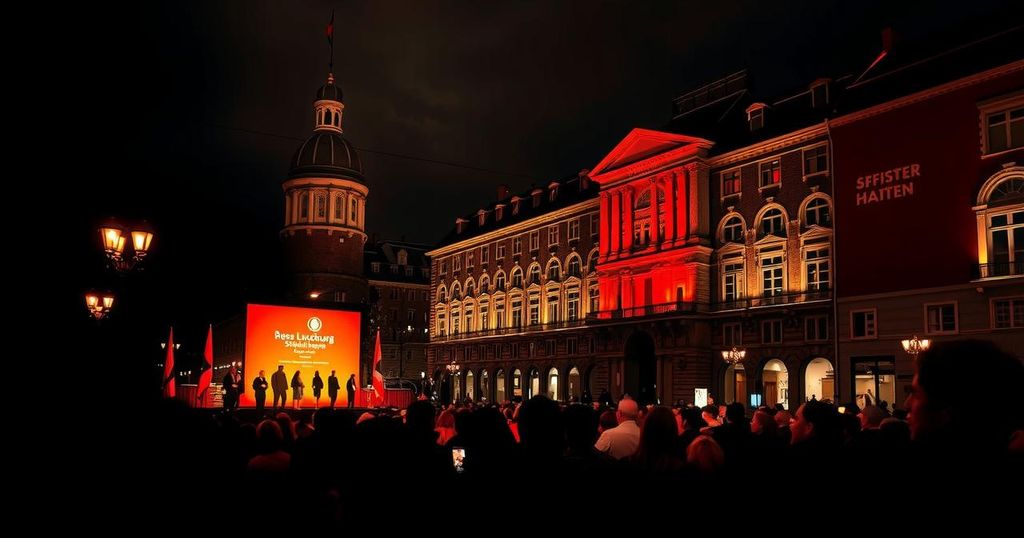The article provides an overview of the film “EUROPE,” directed by Philip Scheffner, and depicts the life of Zohra Hamadi, who begins anew after overcoming health issues but grapples with her husband’s absence due to visa delays. The film will be screened at an event organized by the Rosa-Luxemburg-Stiftung, showcasing Scheffner’s artistic journey.
The bus stop “Europe” is located on an outbound road in the French town of Chatellerault, situated within a small suburb. Nearby are a few blocks, a brasserie, a kebab shop, and a bus that connects the local hospital to a nearby forest, which serves as a recreational area for the town’s residents. Among the locals is Zohra Hamadi, a 32-year-old woman whose life is marked by the conclusion of a lengthy illness. After years of struggle, for the first time in her life, Zohra can walk upright and almost pain-free. Her doctor, who has been instrumental in restoring her mobility, informs her that she can now lead a normal life. Zohra resides in an apartment within the blocks, surrounded by family and friends, and has secured employment at a non-governmental organization that deals with second-hand clothing. However, her joy is tempered by the absence of her husband, Hocine, who remains in Algeria awaiting a visa for family reunification that would allow him to join her in France. The film is followed by a discussion with the director Philip Scheffner. Scheffner has previously produced several critically acclaimed feature-length documentary films, including “THE HALFMOON FILES” (2007), “DER TAG DES SPATZEN” (2010), “REVISION” (2012), and “HAVARIE” (2016), all of which have received numerous awards and have been showcased globally. “EUROPE” is Scheffner’s first narrative film and premiered at the Berlinale in 2022. In addition to his filmmaking, he has held a professorship in Documentary Practices at the Hochschule für Medien in Cologne since 2021. The screening will take place at 20:30, followed by a discussion at 22:15.
The article discusses a film screening and subsequent discussion focused on the life of a woman named Zohra Hamadi, who is experiencing a new chapter in her journey after overcoming significant health challenges. It highlights the themes of resilience, family separation, and the complexities of immigrant experiences, particularly in the context of family reunification processes. The background also introduces director Philip Scheffner’s work, emphasizing his transition from documentary filmmaking to narrative cinema and his commitment to addressing social issues through film.
In conclusion, the article presents an insightful perspective on Zohra Hamadi’s life changes post-illness and her struggles related to family reunification. It serves as a prelude to the film “EUROPE,” enriching the audience’s understanding of the narrative’s socio-political context and the importance of family ties amidst challenges faced by immigrants. Philip Scheffner’s presence underscores the film’s critical engagement with these themes, promising a thought-provoking discussion following the screening.
Original Source: www.rosalux.de

Leave a Reply